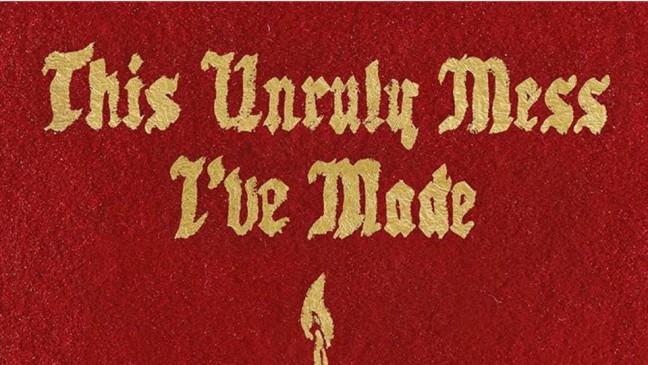This Unruly Mess I’ve Made is a solid sophomore effort by Macklemore and Ryan Lewis, but unfortunately the album as a whole will be overshadowed by its popular hits.
Macklemore, known offstage as Ben Haggerty, further proves his skill as a rapper, with strong emotion and range throughout all songs, whether they’re serious, silly or something in between.
He shows his serious side in the ode to his daughter, “Growing Up,” and offers an equally touching ballad to his love of food on “Let’s Eat.”
“Dance Off” brings listeners back to a light-heartedness not seen since 2007’s classic cut, “The Penis Song.”
But most important of all, Macklemore reinforces the album’s title with lines and verses calling attention to his overnight ascension to superstardom.
While songs like “Bolo Tie,” “Light Tunnels” and “Brad Pitt’s Cousin” contribute to the album’s theme of self-examination, his most noticeable introspection comes on “White Privilege II.” On the track he disdainfully narrates a conversation between himself and a bandwagon fan who denounces the rest of the rap community while praising Macklemore for his more family-friendly attitude.
Macklemore’s lyrical talent and range also shine on “TUMIM.” But the album is not a one-man show. Macklemore’s rhymes depend on Ryan Lewis’ production to make the album the respectable effort that it is.
Lewis’ beats are as original and innovative as they have ever been — his trademark sound leaves a barely recognizable imprint on the wonderful variety of music supporting Macklemore’s vocals.
Lewis’ mark allows one track to bind with the others seamlessly, no matter how great the change of tone between each song. For example, the song “Kevin,” a slow-paced tribute to Macklemore’s friend who overdosed in 2010, easily transitions to the following song, “Buckshot,” a roiling, raucous anthem about featured rapper KRS-One and Macklemore’s graffiti artist pasts.
But it is hard to say the rest of the album matters when“Downtown” will likely be the only song discussed in mainstream circles. Macklemore’s fate as a pop star was sealed when “Thrift Shop” played mutiple times every day on top 40 stations. No matter how hard he tries to prove he is a serious rap artist, he cannot escape this unruly mess he’s made.
This is unfortunate because all of the album’s 13 tracks are highly listenable, but the only one anyone will likely hear is “Downtown” — probably at the next three or four parties they attend.
After “Downtown,” and perhaps “Need to Know” featuring Chance the Rapper, have been wrung out for all they’re worth as “Thrift Shop” and “Can’t Hold Us” were, the world will move on while Macklemore and Ryan Lewis hide out in the woods for another 18 months. After which they will create another brilliant album that no one will listen to in its entirety.
The album is not perfect — it is enjoyable, but not groundbreaking; quality, but not revolutionary. It will probably not be remembered in 30 years as standing with Kendrick Lamar’s Good Kid, M.A.A.D City or Chance the Rapper’s Acid Rap, but it is far better than the one or two tracks on it that will be overplayed.
All of the songs are good in their own right, but the effect of hearing each song support the one before and after emphasizes Lewis’ skill as a producer and Macklemore’s skill as a lyricist.
Listeners should go through the album’s entirety, and they will likely discover a new favorite.


